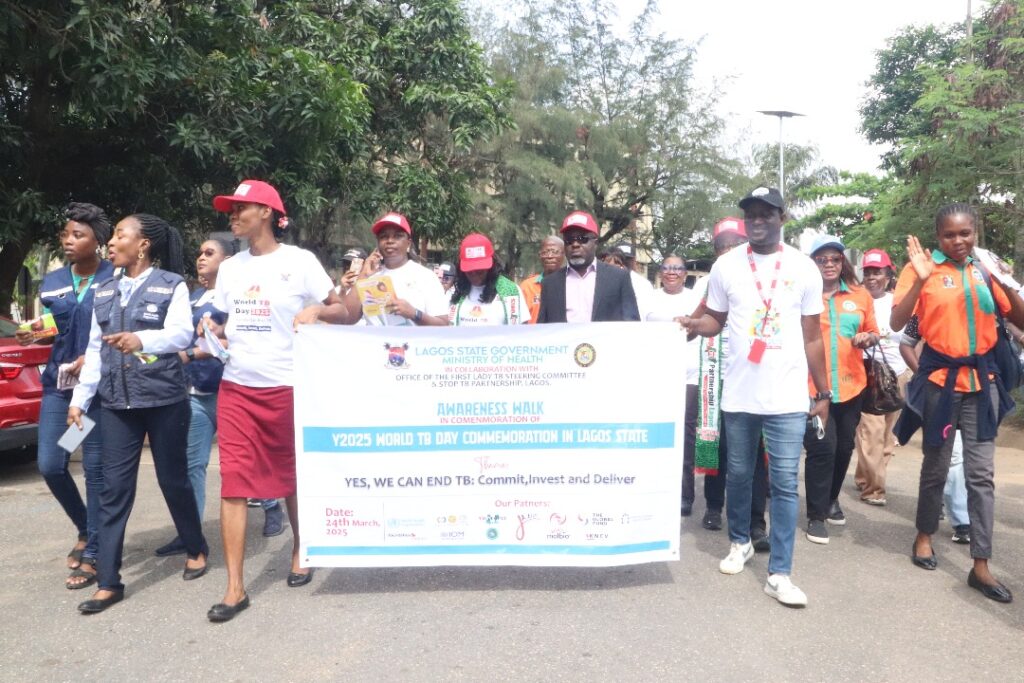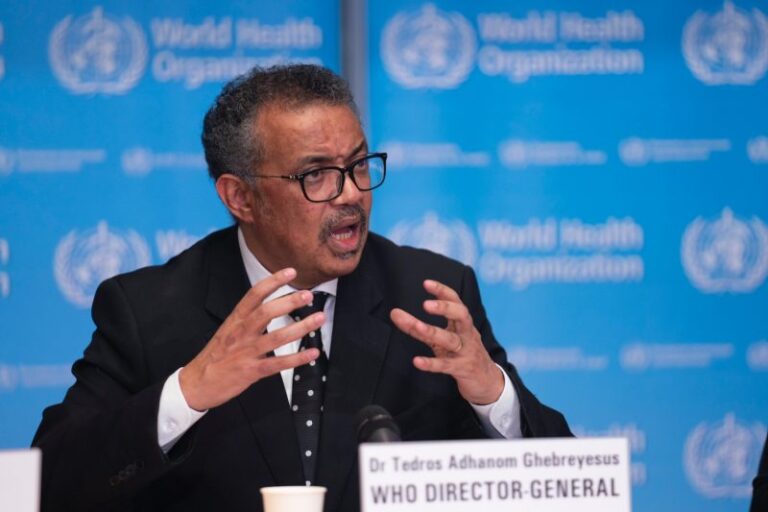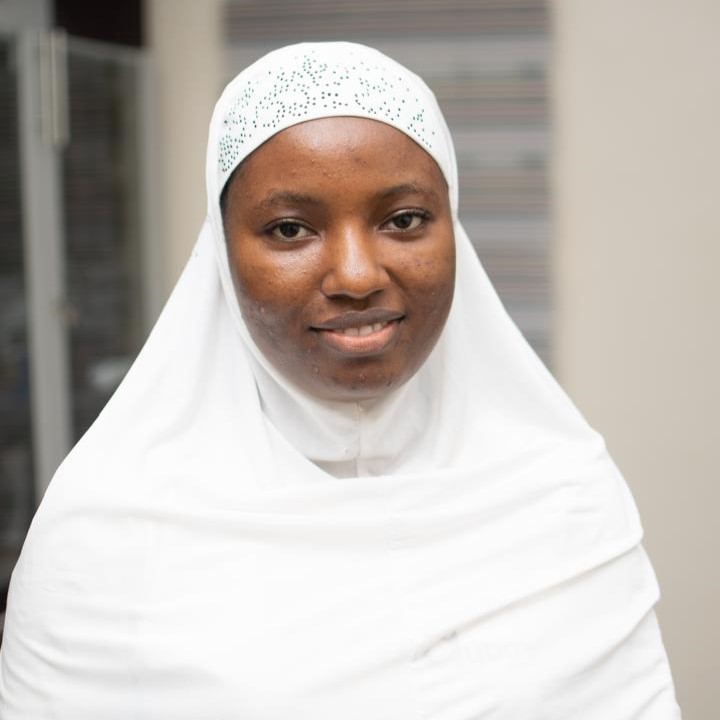The World Health Organisation (WHO) has called for urgent investment of resources to protect and maintain Tuberculosis (TB) care and support services for people in need across regions and countries.
The organisation raised concerns that cuts in global health funding could reverse two decades of progress in the fight against the disease.
WHO warned that disruptions in TB prevention, screening, and treatment worldwide are endangering millions of lives as TB remains the world’s deadliest infectious disease, causing over one million deaths annually, and leaving devastating impacts on families and communities.
Director-General of the organisation, Tedros Ghebreyesus in a message to mark the 2025 World TB Day, highlighted that global efforts to combat TB have saved an estimated 79 million lives since 2000.
However, he warned that recent abrupt cuts in global health funding now threaten to reverse these hard-earned gains.
He revealed that in 2023, only 26 per cent of the annually required US$22 billion for TB prevention and care was available, leaving a huge funding gap.
Dr Ghebreyesus lamented that TB research is also in crisis, as it received only one-fifth of the targeted US$ 5 billion in 2022. This severe funding shortfall, he said, has significantly delayed progress in developing improved diagnostics, treatments, and vaccines.
The severe disruptions in TB response according to him, are seen across several of the highest-burden countries following the funding cuts with countries in the WHO African Region experiencing the greatest impact, followed by countries in the WHO South-East Asian and Western Pacific Regions.
“27 countries are facing crippling breakdowns in their TB response, with devastating consequences, as nine countries report failing TB drug procurement and supply chains, jeopardising treatment continuity and patient outcomes.
“The 2025 funding cuts further exacerbate an already existing under-funding for global TB response while rising drug resistance especially across Europe and the ongoing conflicts across the Middle-East, Africa and Eastern Europe, are further exacerbating the situation for the most vulnerable,” he said.
This year’s theme, ‘Yes! We Can End TB: Commit, Invest, Deliver’, according to Ghebreyesus, highlights a rallying cry for urgency, accountability and hope.
However, WHO reaffirmed its commitment to working with all donors, partners and affected countries to mitigate the impact of funding cuts and find innovative solutions. “We cannot give up on the concrete commitments that world leaders made at the UN General Assembly just 18 months ago to accelerate work to end TB.”
Tinubu declares TB national emergency

Nigeria’s First Lady, Oluremi Tinubu on Monday declared TB a national emergency, lamenting that one person dies of the disease every seven minutes.
Speaking at a community outreach in Sauka, Abuja to commemorate the 2025 World TB Day, Senator Tinubu stressed the need to urgently address the disease since it is preventable and curable.
“Beyond being a disease, TB is a national emergency that needs to be addressed urgently, because it is preventable and curable. The statistics from the WHO’s 2024 Global TB Report are alarming. In Nigeria, one person dies of TB every seven minutes, which means that in the short time we will spend at this event, many more lives will be lost, if we do not act swiftly and decisively. Nigeria remains one of the top eight countries with the highest burden of TB worldwide. It is unacceptable,” she said.
She appealed to stakeholders including healthcare workers, private sector organisations, non-governmental organisations, traditional and religious leaders, legislators, youth, community-based organisations, and international partners to join forces in the fight against the disease.
As the Global and National Stop TB Champion, she reassured of her commitment to tackling TB by advocating for more funding, policy reforms, and resource mobilisation to support awareness and treatment.
The Minister of State for Health and Social Welfare, Iziaq Salako who also spoke at the awareness programme lamented that TB remains a major public health challenge as Nigeria ranks first in Africa and sixth globally among the high-burden countries.
Dr Salako revealed that in 2023, an estimated 499,000 Nigerians developed TB, with the majority falling within the productive age group of 25 to 44 years. This, he said, has resulted in economic hardships.
He added that the situation is further exacerbated by stigma, poverty, malnutrition, overcrowded living conditions, and inadequate access to quality healthcare, all of which hinder effective TB prevention and treatment efforts.
Despite the challenges, he said Nigeria has made significant progress in TB eradication through WHO-recommended strategies.
The WHO Country Representative in Nigeria, Walter Molumbo, who also attended the event promised to step up action towards mobilising the needed domestic and international resources required for ending TB in Nigeria.
Lagos re-affirms commitment to free TB screening, treatment

The Lagos State Government through the Ministry of Health embarked on a mass awareness walk around the state to mark the World TB Day.
The awareness walk, which preceded a stakeholders’ engagement, saw health officials, community leaders, and volunteers marching through the streets of Alausa community, with banners, music, and placards, chanting anti-TB slogans and distributing educational materials.
Participants also engaged passersby in conversations about TB symptoms, prevention, and the availability of free screening and treatment.
The First Lady of the Lagos State, Ibijoke Sanwo-Olu underscored the severity of TB, emphasising the need for a grassroot approach in tackling the disease.
Dr Sanwo-Olu, who spoke at the stakeholders’ engagement held at the Folarin Coker Staff Clinic Conference Hall, Alausa, said, “When I was made the TB Ambassador for Lagos State in 2023, I realised we needed a more strategic approach.
“That was why we launched the TB Ambassadors and Champions in our Local Government Areas and LCDAs, involving 47 chairpersons, including 10 female chairmen, to extend awareness at the grassroots level.”
Dr Sanwo-Olu emphasised the importance of community engagement, advocating for the active involvement of key groups such as transporters, market traders, and schoolchildren among others as TB ambassadors.
“We need to ensure that even a bus conductor or a schoolchild can confidently discuss TB, its symptoms, and the fact that screening and treatment are free,” she stressed.
The first lady acknowledged the stigma surrounding TB patients and stressed the need for widespread education to change misconceptions and foster a more supportive environment.
While calling for greater private sector involvement in TB eradication efforts, she emphasised the urgent need for more mobile TB screening trucks to reach all five administrative divisions of Lagos State (IBILE – Ikeja, Badagry, Ikorodu, Lagos Island, and Epe).
“People must understand that TB is not just a disease of the poor. It affects everyone. If your nanny, driver, or child’s teacher has TB, they expose you. That’s why we must take this fight seriously,” she warned, urging other states to adopt Lagos’ TB strategies, and collaborate for nationwide eradication before 2030, in line with global health targets.
In her remark, the Special Adviser to Governor Babajide Sanwo-Olu on Health, Kemi Ogunyemi, emphasised the impact of stigma and poverty in TB transmission and care, stressing that many people avoid seeking medical help due to fear of discrimination.
To combat this, Dr Ogunyemi said that the state government has integrated TB services into primary healthcare centers to ensure easier and stigma-free access to screening and treatment.
World TB Day
Every year on 24 March, the world commemorates World TB Day to raise TB awareness, and mobilise efforts, including political commitment to resources and healthcare financing for the elimination of the disease.
This year’s theme is “Yes! We Can End TB: Commit, Invest, Deliver,” with the slogan, “We fit do am.”
TB is an infectious disease caused by a bacterium (mycobacterium tuberculosis) that most often affects the lungs. It occurs when bacteria multiply in the body and affect different organs.
It spreads through the air when people already infected cough, sneeze or spit. Though it is preventable and curable.
Those who are infected but free of disease cannot transmit it and they don’t feel sick. Only a small proportion of people who get infected with TB will get TB disease and symptoms, but babies and children are at higher risk.
According to WHO data, a total of 1.25 million people lost their lives to TB in 2023. Among them, 161,000 were individuals living with HIV.
The data further reveals that TB affects more men than women and children. Of the estimated 10.8 million people who fell ill with TB globally in 2023, six million were men, 3.6 million were women, and 1.3 million were children.
TB, which was the leading killer of people with HIV and a major cause of deaths related to antimicrobial resistance, according to WHO, has probably returned to being the world’s leading cause of death from a single infectious agent. It was replaced by coronavirus disease (COVID-19) in the past three years.
About a quarter of the global population is estimated to have been infected with TB bacteria while about five to 10 per cent of people infected will eventually get symptoms and develop TB disease.
Common symptoms of TB are prolonged cough (sometimes with blood), chest pain, weakness, fatigue, weight loss, fever and night sweats. While TB usually affects the lungs, it can also affect the kidneys, brain, spine and skin.



